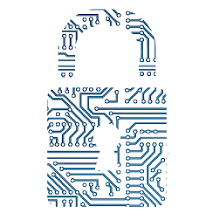What
races through your psyche when you see "Covid" or "Coronavirus"? Dread, nervousness, interest… these inner responses can
provoke activities that we may not ordinarily take. Late assaults have been
conveying compulsory gathering welcomes that request that you sign in to
accounts. Others have been accepting messages to put themselves standing by for
an antibody or treatment. The uplifted feelings we experience when we see
messages, or messages like this, may incite us to give individual data out more
readily than we generally would. Security mindfulness accepts a rearward
sitting arrangement as feeling dominates. It's known as amygdala seizing. For
what reason does this happen to us.
Amygdala Hijacking in Cyber Security
Scams
The
amygdala is a little piece of the mind that is generally liable for creating
enthusiastic reactions. An amygdala commandeer is when something creates a
staggering and quick passionate reaction.
Numerous
basic network protection tricks use amygdala seizing to their advantage. We see
this utilized frequently in phishing, vishing, SMShing, and pantomime assaults. Chris Hadnagy of
Social-Engineer, LLC did a contextual analysis on amygdala capturing in
friendly designing.
Phishing
Chris conveyed 1,000 phishing
messages that offered customer workers the opportunity to enter a wager to win
1 of 10 free iPhones. All they needed to do was click on a connection and enter
the username and secret phrase to their PC. 75% (750) of the workers tapped the
connection and entered their space accreditations.
Vishing
Out of these 750 names, Chris took
25 and called them. He professed to be technical support for their organization
and educated them their PC was currently weighed down with malware because of
a phishing email that
had recently been clicked. To fix this he said he would have to guide them to a
site where they can download a .exe and introduce it. He said this was a
tidying instrument that would tidy up the malware. It was really a program that
permitted Chris to get to their work area distantly. Incredibly, 24 of 25 of
the workers downloaded and ran this program!
The feeling used to provoke the
ideal reaction this time was nervousness. The representative was anxious that
their framework had been undermined and was able to execute the arrangement
when one was advertised. These two tests were incredibly fruitful. Envision if
Chris had been a noxious programmer, as opposed to an employed security
proficient. He would now approach 24 PCs inside this organization. The danger
and exertion put in on his side was low, particularly when contrasted with the
result.
Amygdala Hijacking During a Pandemic
Remember
this examination and consider our present world circumstance. Many feel
restless about friends and family, their wellbeing, and financial steadiness.
This setting fits tricks that influence amygdala seizing. I'm certain you can
think about a period in the past when con artists utilized misfortune for their
potential benefit.
Media sources all around are giving admonitions of COVID-19 tricks
that are coursing. Realizing the strategies is simply the beginning of getting
ready to stay away from these tricks. We can ensure ourselves in the event that
we simply pause and think. In the event that you feel yourself responding
sincerely to an email or a call, simply give your mind a second. By stopping,
you will permit your rationale capacities to begin working again and have the
option to settle on a more educated choice.
Ask
Yourself
In
the event that you don't know whether the email is a phishing email or a real
one, there are a couple of things you can request that yourself help your
evaluation: Who, what, when, where, and why?
⬤Who
– Who sent this email? Is it from somebody you know and trust? Is it from an
assistance you use? Assuming this is the case, is the email address
theirs?
⬤What
– What is the subject of the email? On the off chance that it is from somebody
you know, does it seem like them? On the off chance that it's from a specialist
co-op, is the language right and the clarification clear?
⬤When
– When was the email sent? Is it in the midst of a worldwide emergency? Or on
the other hand, promptly in the first part of the day when you're as yet drowsy? Ensure you're not clicking a direct result of your
present passionate or actual state.
⬤Where
– Where is this connection sending me? Turn over the connection to check
whether it looks genuine. On the off chance that you are uncertain, the best
activity is to go straightforwardly to the organization's site. For instance,
if this is a solicitation for your secret phrase reset, essentially reset it
through their site instead of through the email.
⬤Why
– Why would I like to click this connection? Is there something in the phrasing
that is causing me to feel a forceful feeling? Assuming this is the case, take
a gander at the connection prior to clicking.
⬤Addressing
these inquiries may not offer you a complete response as to if the speculated
email is genuine or not, however it will give you a superior thought. If all
else fails, pay attention to your instinct if something feels off. click here.





0 Comments